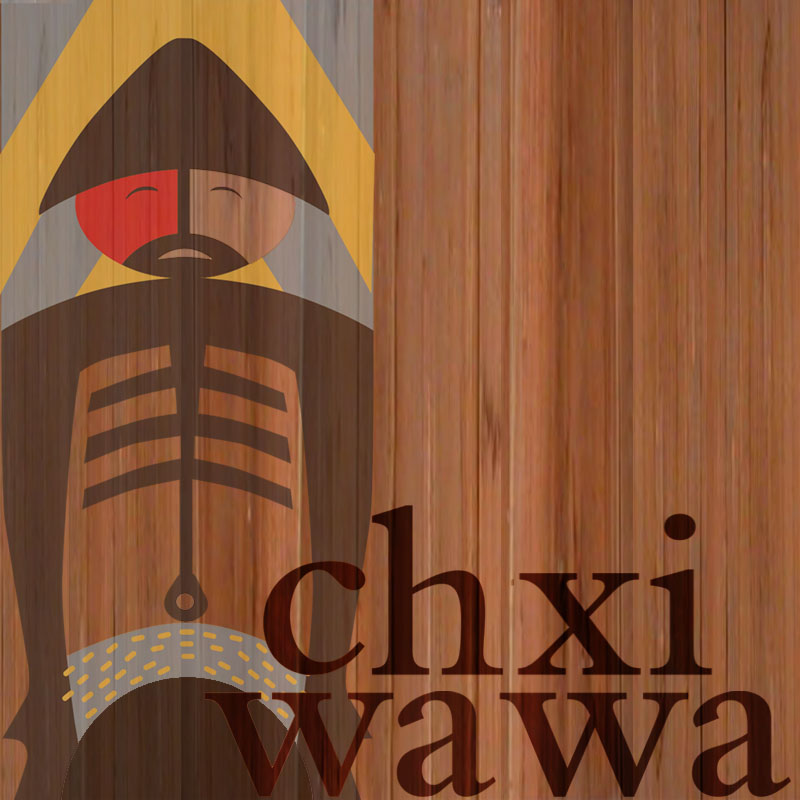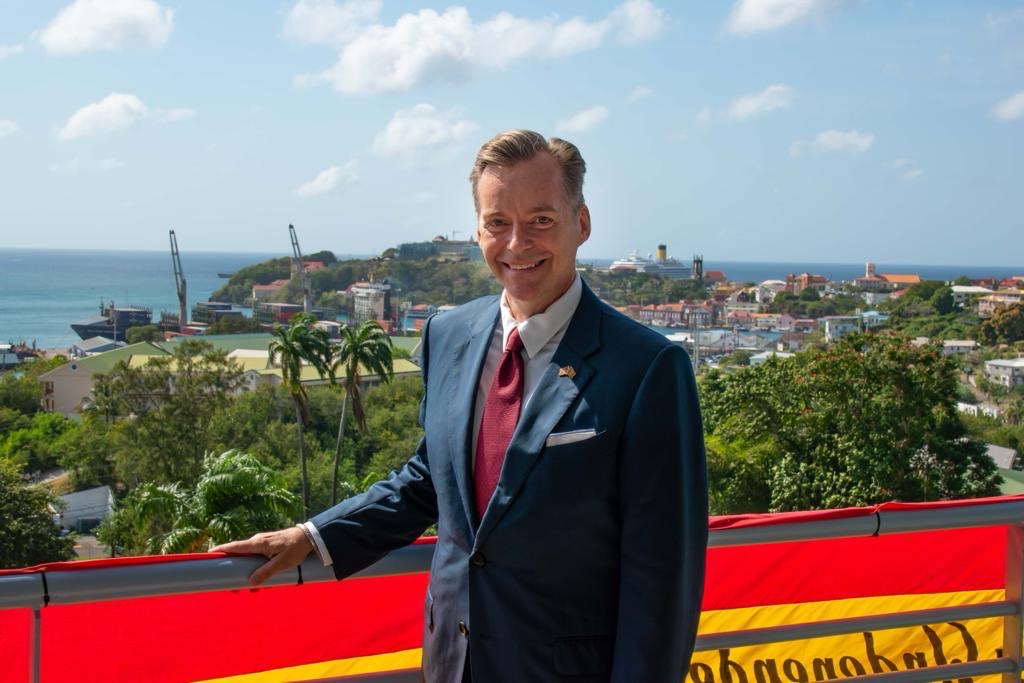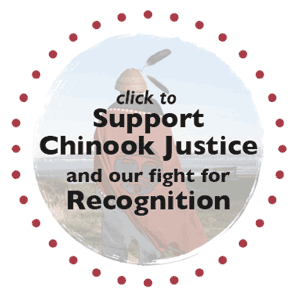An Interview with Ambassador Roger Nyhus, Tribal Member
By Sean Smith,
Chinook Tribal Member Roger Nyhus never imagined that he would become a United States ambassador, especially in a part of the world he’d never been before. But that’s exactly what happened to the Seattle businessman when President Joe Biden named him as Ambassador to Santa Lucia, a post that represents the United States to the seven Eastern Caribbean nations of Antigua and Barbuda, Barbados, Dominica, Grenada, Saint Kitts and Nevis, Saint Lucia, and Saint Vincent and the Grenadines.
Now that he’s been in the role for a few months, however, he better understands the rationale for his appointment.
“I grew up in Westport, a small tourism fishing village. The communities on these island nations are very similar to that. They have fancy hotels, but their economies are very similar to what we see in our part of the world: beach towns, tourist towns, service economy. Those similarities are striking and that’s been the most rewarding; when I explain that to people here, I see that ‘a-ha!’ moment, and they think, ‘President Biden made a smart choice by sending this guy from the Pacific Northwest to this part of the world.’”
The son of a commercial fisherman and municipal court clerk, Nyhus ran Westport’s summer fishing derby to help pay for college. After graduation from Washington State University, he moved to Seattle and started a strategic communications, advocacy, and marketing consultancy. He ran it for nearly thirty years and won numerous awards for his work and leadership, including the Puget Sound Chapter of the Public Relations Society of America’s Jay Rockey Lifetime Achievement Award for advancing the field of public relations.
His work with companies in sectors such as sustainability and energy, aviation, travel and tourism, telecommunications, global health and health care, seafood, and the arts helped prepare him for the role in the East Caribbean. But it is his Chinook status that is making him most effective in the role.
“My indigenous heritage had a lot to do with my selection,” explains Nyhus. “I have no doubt. I honor that and I bring that forward. I bring my Chinook heritage to everything that I do. I talk about my heritage in virtually every conversation with government leaders. When I explain the Tribe and the significance of the Tribe, having greeted Lewis and Clark, and still struggling for federal recognition, it’s eye opening for them, and they feel a sense of connection they didn’t expect.”
Nyhus is one of only a handful of ambassadors in all of United States history to have Native American heritage. It’s impossible to know the exact number as the State Department did not track that data until recently, but according to Nyhus, “people can only name a total of five, including me. And that goes back to Benjamin Franklin in the 1770s.”
Even more remarkable, two of those five Indigenous ambassadors are Chinook. The other, of course, was J. Christopher Stevens, the Tribal Member killed in 2012 when he was Ambassador to Libya. When Nyhus was going through the selection process, he learned that he and Stevens were fourth cousins.
“It’s an unbelievable connection,” Nyhus said. “I spoke with Chris’s sister when I was going through this process, and it was a really moving conversation. I actually lost a brother to a shooting when I was thirteen years old, and so I can relate to what their family went through. Obviously, theirs played out in international news, but I do bring Chris’s memory with me. I think of him often. He was the consummate American diplomat who made a huge difference in the lives of many people, and if I can do a smidgen of what he did, I will be proud.”
As a political appointee to the position, Nyhus serves at the pleasure of the president, and with a presidential election looming this year, he doesn’t know how long he’ll get to be in the role. As such, he is moving fast to leave his mark.
“My top three priorities are clear and actionable, and that’s where I will spend most of my time. One is addressing climate change. Climate change is real. The sea level rising, the warming of the ocean, the plastic pollution, all those things are just as relevant on the West Coast as they are in these small island nations. Two is enhancing regional security, three is promoting economic prosperity for all. These are big, broad priorities and virtually all my work will fit within those. I will work hard to move the needle on each of these.”
Nyhus is grateful to have this opportunity to make a difference.
“It’s the honor of a lifetime to serve the country, President Biden, and the Chinook Indian Nation,” he said.
Sean Smith is Chinook, and a member of the communications committee








